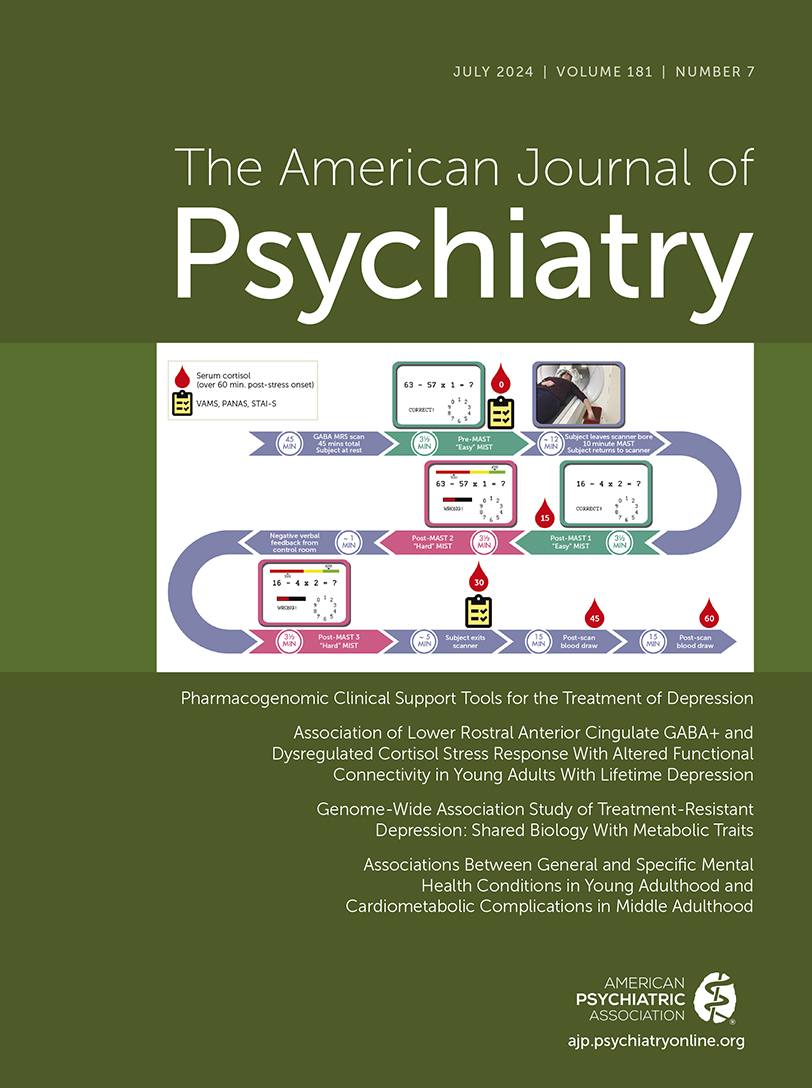A Nationwide Target Trial Emulation Assessing the Risk of Antidepressant-Induced Mania Among Patients With Bipolar Depression
Abstract
Objective:
Antidepressants are commonly used to treat bipolar depression but may increase the risk of mania. The evidence from randomized controlled trials, however, is limited by short treatment durations, providing little evidence for the long-term risk of antidepressant-induced mania. The authors performed a target trial emulation to compare the risk of mania among individuals with bipolar depression treated or not treated with antidepressants over a 1-year period.
Methods:
The authors emulated a target trial using observational data from nationwide Danish health registers. The study included 979 individuals with bipolar depression recently discharged from a psychiatric ward. Of these, 358 individuals received antidepressant treatment, and 621 did not. The occurrence of mania and bipolar depression over the following year was ascertained, and the intention-to-treat effect of antidepressants was analyzed by using Cox proportional hazards regression with adjustment for baseline covariates to emulate randomized open-label treatment allocation.
Results:
The fully adjusted analyses revealed no statistically significant associations between treatment with an antidepressant and the risk of mania in the full sample (hazard rate ratio=1.08, 95% CI=0.72–1.61), in the subsample concomitantly treated with a mood-stabilizing agent (hazard rate ratio=1.16, 95% CI=0.63–2.13), and in the subsample not treated with a mood-stabilizing agent (hazard rate ratio=1.16, 95% CI=0.65–2.07). Secondary analyses revealed no statistically significant association between treatment with an antidepressant and bipolar depression recurrence.
Conclusions:
These findings suggest that the risk of antidepressant-induced mania is negligible and call for further studies to optimize treatment strategies for individuals with bipolar depression.
Access content
To read the fulltext, please use one of the options below to sign in or purchase access.- Personal login
- Institutional Login
- Sign in via OpenAthens
- Register for access
-
Please login/register if you wish to pair your device and check access availability.
Not a subscriber?
PsychiatryOnline subscription options offer access to the DSM-5 library, books, journals, CME, and patient resources. This all-in-one virtual library provides psychiatrists and mental health professionals with key resources for diagnosis, treatment, research, and professional development.
Need more help? PsychiatryOnline Customer Service may be reached by emailing [email protected] or by calling 800-368-5777 (in the U.S.) or 703-907-7322 (outside the U.S.).



